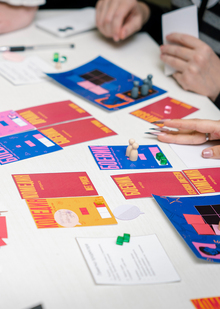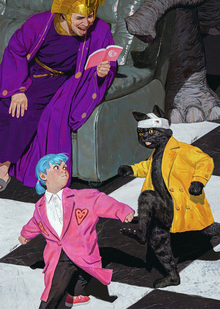
Key Speakers & Discussion
The international scientific conference «Game Design & Game Studies: Video Game Ontology» was held from the 27th to the 28th of February, 2025. The conference was organized by the HSE Art and Design School and the HSE Postgraduate School of Art and Design.
From Procedural Rhetoric to Ludohermeneutics and Beyond: Toward a New Understanding of Video Games
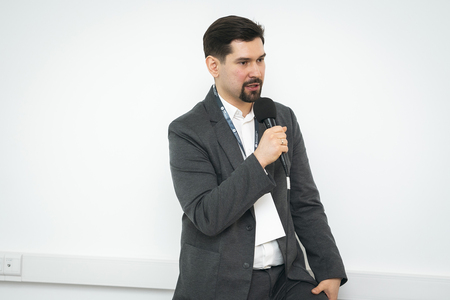
Alexey Salin
HSE Art & Design School, Ph.D.When Ian Bogost and Gonzalo Frasca proposed procedural rhetoric or simulation rhetoric as a theory of meaning-making in videogames, it was meant to be a way of rejecting the hegemony of literary schemas in game studies by emphasizing that meaning can be expressed in rules. However, this approach was soon criticized for its excessive formalism and insufficiency: rules are not all that is needed for a game to be a game. As a result, the attention of researchers was drawn to an alternative theory, i.e. ludohermeneutics, which insists on the importance of analyzing play from the perspective of play experience rather than abstract forms. In this paper, I will question the extent to which ludohermeneutic theories themselves break with the formalism they were originally directed against, and propose my theory of meaning-making in video games.
VKVideo || YouTube
Advancing Game UX & Ethics

Celia Hodent
National Commission on Informatics and Liberty, Ph.D. Cognitive PsychologyVideo games are an art form and they are meant to entertain people. As such, they put psycological and physical pressure on players to generate fun and engagement. But business models can also put pressure on players to encourage retention and conversion. When does this pressure cross ethical lines? What can we do to encourage better practices in the game industry? This talk proposes to discuss what an ethical framework would look like in game development.
VKVideo || YouTube
Dysgamification. What Happens to Computer Games When They Stop Being Played?
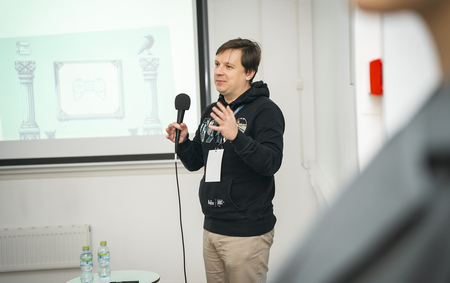
Konstantin Ocheretyany
Saint-Petersburg State University, Ph. D.«Gamers were furious to learn that…» is how clickbait news about computer games usually begins. «Gamers don’t play games» is how any, not necessarily professional, discussion of computer games usually begins. However, despite the frequency of such expressions — they rarely become the subject of reflection, there is no question why the game is important not so much as practice, but as knowledge, as a form of discourse, as something that, although no longer played, still has the power to offend, is a source of interest and a catalyst for discussion? The report will examine the phenomenon of the post-game existence of a computer game, the ontological status of a computer game: when it is no longer «impossible» to play it, when the game inspires imagination more than desire and thus indirectly works with memory, emotions, feelings, becoming an event.
VKVideo || YouTube
The Another Beginning. Soviet Game Research Project
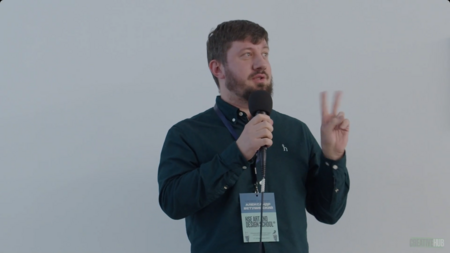
Alexander Vetushinskiy
Institute of Business and Design (B & D)As soon as video game researchers in Russia discovered game studies, there was an immediate temptation to dissolve into the approaches cultivated in this new academic discipline. This was despite the fact that the context of the emergence of Russian video game studies was completely different. In Russia, video game studies were rooted not in literary studies (as was the case in Northern Europe), but in philosophy (with all the peculiarities regarding what is called philosophy in Russia). The report shows that it is more logical to root Russian video game studies in Soviet game studies. Authors such as Vsevolodsky-Gerngross, Vygotsky, and Elkonin should not be overshadowed by Huizinga, Caillois, or Fink. This allows us to see in the Soviet heritage an additional resource for creating and developing original Russian video game studies.
VKVideo || YouTube
New Perspectives: Contemporary Video Game Cameras

Ryan Banfi
Martin Scorsese Department of Cinema Studies, NY U, Ph.D. CandidateThis presentation draws upon film theory to hypothesize new interpretations of video game cameras. While virtual cameras have emulated physical cameras, I propose three original concepts: the «exploratory camera, ” „affected camera, ” and the „continuous camera technique.“ These three perspectives underscore how modern video game cameras transcend the physical limitations of their counterparts. Moreover, I examine player perspectives, namely first and third-person POVs, as these are necessary for controlling avatars and engaging with the game’s world.
VKVideo || YouTube
Discussion. Pathways through the Mess: On Current Status of Video Game Ontology and its Developments
Participants:
Alexander Vetushinskiy — Institute of Business and Design (B & D)
Konstantin Ocheretyany — Saint-Petersburg State University
Vladislav Kirichenko — HSE in St. Petersburg
Maro Malenko — HSE Art & Design School
Amir Abu Makhadi — HSE Art & Design School
Moderator: Alexey Salin — HSE Art & Design School
VKVideo || YouTube
